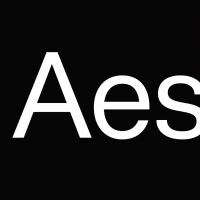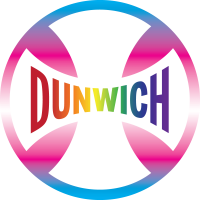Copyright Ownership

Michael Jarboe
Posts: 265
Is anyone aware of any instances of copyright ownership issues of fonts related to the creation/generation of fonts by open source software and/or 3rd party software? Is it possible that an open source macro or extension with a restrictive license could compromise the copyright and ownership of a final generated font? Just curious if anything regarding this topic has ever come up in the history of digital type design.
Tagged:
0
Comments
-
Both Inkscape and the GIMP, which are GPLed graphics packages, make it clear that the license does not apply to or have any copyright implications for works generated using them. The relevant part of the GPL FAQ is https://www.gnu.org/licenses/gpl-faq.en.html#WhatCaseIsOutputGPL1
-
Works created with open source software are almost never subject to the license terms of the software. There was plenty of FUD suggesting otherwise about open source in the years 2000 – 2005, but it rarely (if ever) turned out to be true. In general a license like this is a great way to get blackballed by just about everybody.
1 -
A related question… is there anything in the EULA or terms and conditions of font editing software programs (FontLab, Glyphs, Robofont, etc.) that specifically states the program's output is owned by the author and not the font editing software company?0
-
Maybe, but I doubt it would be necessary. A tool company claiming ownership of the products of its users would be commercial suicide. Why would anyone ever use, much less purchase, such a tool if this was the case?
This reminds me of a crazy debate I had a few years ago on Typophile with a guy who was convinced that Adobe was claiming ownership of everything that anyone ever sent to a PostScript output device just because he noticed an Adobe copyright notice in the PostScript file that was sent to the device. I guess he imagined that one day Adobe would announce that it owned every document ever printed in the last 30 years and demand payment for copyright infringement or something.
I'm not saying you are crazy, but if this were an issue, it would have come to light a long time ago.2 -
There is not a sane soul on earth who would by a software product which claimed rights to anything created with it. As Mark says, "Commercial Suicide."2
-
Thanks Mark. Some things came to my attention lately as I've been trying to learn more about the legal side of our field. This is more so just a thought excercise looking at the bounds of what's possible, and I have quite a few curiosities! (although I may have a little crazy in me, too, lol)0
-
This might be related https://bugs.debian.org/cgi-bin/bugreport.cgi?bug=665334 (FontForge embedding Adobe copyrighted PostScript snippet from Type 1 spec into fonts).
1 -
I also wonder what identifying data from what programs–whether the main programs (FontLab, Robofont, Glyphs), or Macros (Adobe FDK, RMX Tools), or Extensions (Slanter, word-o-mat) get written into the final font files.0
-
Font editors sometimes put something in the version string. Fontographer used to do this. Here's an example:
Macromedia Fontographer 4.1.3 11/26/03
With more recent tools, I have noticed that the AFDKO, which most modern font editors use to generate OpenType fonts, leaves some info in the version string to help with quality control presumably. Usually looks something like this:Version 1.003;PS 001.003;hotconv 1.0.88;makeotf.lib2.5.64775
I have noticed that ttfautohint by default adds something, but I can't seem to find an example.
It's possible to suppress or strip out either of these, but I think they are there to be helpful when troubleshooting font problems, not for any legal shenanigans.1 -
This is true. The minority of cases are where a copyleft licensed program copies parts of itself into its output, and therefore its output is under copyright a derivative work.James Puckett said:Works created with open source software are almost never subject to the license terms of the software
An old example is GNU Bison. The license for that project was updated to provide additional permission (an 'exception') to the permissions in the regular GNU GPL to allow for the output to be licensed under terms incompatible with the GPL.
The Bison manual explains:Conditions for Using Bison
The distribution terms for Bison-generated parsers permit using the parsers in nonfree programs. Before Bison version 2.2, these extra permissions applied only when Bison was generating LALR(1) parsers in C. And before Bison version 1.24, Bison-generated parsers could be used only in programs that were free software.
The other GNU programming tools, such as the GNU C compiler, have never had such a requirement. They could always be used for nonfree software. The reason Bison was different was not due to a special policy decision; it resulted from applying the usual General Public License to all of the Bison source code.
The main output of the Bison utility—the Bison parser implementation file—contains a verbatim copy of a sizable piece of Bison, which is the code for the parser’s implementation. (The actions from your grammar are inserted into this implementation at one point, but most of the rest of the implementation is not changed.) When we applied the GPL terms to the skeleton code for the parser’s implementation, the effect was to restrict the use of Bison output to free software.
We didn’t change the terms because of sympathy for people who want to make software proprietary. Software should be free. But we concluded that limiting Bison’s use to free software was doing little to encourage people to make other software free. So we decided to make the practical conditions for using Bison match the practical conditions for using the other GNU tools.
This exception applies when Bison is generating code for a parser. You can tell whether the exception applies to a Bison output file by inspecting the file for text beginning with “As a special exception…”. The text spells out the exact terms of the exception.- https://www.gnu.org/software/bison/manual/html_node/Conditions.html
So yes, it is indeed possible that a macro or extension with a copyleft license could form a combined and thus derivative work with a generated font.
But it is much more likely that a macro or extension with a restrictive license would effect generated fonts, because libre software is subject only to copyright licenses, while restricted software is typically subject both to copyright and to contracts; it is easy to make a contract term that says all rights adhering to work that is output by the software is assigned to the software owner, and when combined with the now-common arbitration terms in restricted software contracts, you will have no recourse in the public courts.
Such clauses are much more common in software licenses that feed publishing networks.1 -
In Fontlab 5, if you leave the copyright fields blank it will actually add a string saying that it is copyrighted by Adobe...4
-
Jeremy: I can't reproduce that in FontLab Studio 5.1.5 for Mac. Are you sure this bug hasn't been fixed some time ago?0
-
Thomas, I'm running 5.2.2 on Windows, and I use a python script to generate my font files. It's possible that my script bypasses some failsafe, but I recall testing it by generating normally and got the same results.0
-
Hmmm. Could be a Windows-only issue. I'll check on it when I have a few minutes to launch Windows.1
Categories
- All Categories
- 46 Introductions
- 3.9K Typeface Design
- 489 Type Design Critiques
- 568 Type Design Software
- 1.1K Type Design Technique & Theory
- 662 Type Business
- 868 Font Technology
- 29 Punchcutting
- 526 Typography
- 121 Type Education
- 326 Type History
- 79 Type Resources
- 112 Lettering and Calligraphy
- 33 Lettering Critiques
- 79 Lettering Technique & Theory
- 564 Announcements
- 95 Events
- 116 Job Postings
- 170 Type Releases
- 182 Miscellaneous News
- 278 About TypeDrawers
- 55 TypeDrawers Announcements
- 121 Suggestions and Bug Reports



